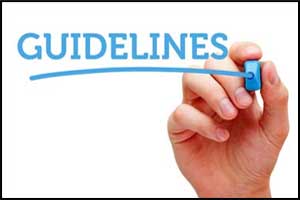- Home
- Editorial
- News
- Practice Guidelines
- Anesthesiology Guidelines
- Cancer Guidelines
- Cardiac Sciences Guidelines
- Critical Care Guidelines
- Dentistry Guidelines
- Dermatology Guidelines
- Diabetes and Endo Guidelines
- Diagnostics Guidelines
- ENT Guidelines
- Featured Practice Guidelines
- Gastroenterology Guidelines
- Geriatrics Guidelines
- Medicine Guidelines
- Nephrology Guidelines
- Neurosciences Guidelines
- Obs and Gynae Guidelines
- Ophthalmology Guidelines
- Orthopaedics Guidelines
- Paediatrics Guidelines
- Psychiatry Guidelines
- Pulmonology Guidelines
- Radiology Guidelines
- Surgery Guidelines
- Urology Guidelines
AIIMS releases guidance on Antibiotics in Pancreatitis

All India Institute of Medical Sciences, Delhi has released AIIMS Antibiotics Policy which has been prepared by the Department of Medicine with Multidisciplinary collaboration. The guidance for Gastroenterological Infections includes Pancreatitis the salient features of which have been authored in the guidance.
The development of pancreatic infection is associated with the development of a deteriorating disease with subsequent high morbidity and mortality. There is agreement that in mild pancreatitis there is no need to use antibiotics; in severe pancreatitis it would appear to be a logical choice to use antibiotics to prevent secondary pancreatic infection and decrease associated mortality.
When to suspect
Any of the two present (pancreatitis)
Epigastric pain, radiating to back
Elevated serum amylase or lipase 3x (more specific) of normal
Imaging evidence: Infected pancreatic necrosis (Usually after 2nd week of illness)
Presence of air in the pancreatic or extra-pancreatic collection.
Persistent or new-onset organ failure
Persistent or new-onset SIRS
Antibacterial treatment indicated only if there is clinical/ radiological evidence of infected pancreatic necrosis
How to confirm
Confirmation of infected pancreatic necrosis requires radiological and microbiological diagnostic procedures. Among the radiological investigations ultrasound abdomen and contrast-enhanced computed tomography (CECT) scan is the investigation of choice.
CT with contrast to look for necrosis- best identified 5-7 days after symptoms
CT or US-guided aspirate or catheter drainage – gram stain, bacterial & fungal culture
Blood culture and sensitivity
Aetiology: Gram-negative (Enterobacteriaceae>Pseudomona
Treatment:
Preferred: Inj Imipenem/Cilastatin 500 mg QID Or Inj Meropenem 1g TDS Or Inj Piperacillin-tazobactam 4.5g QID or Cefoperazone sulbactam 3g IV BD
Alternative: Inj Ceftazidime (2 g IV TDS) plus Inj Metronidazole (500mg IV TDS) Or Inj Cefepime (2 g IV TDS) Plus Inj Metronidazole (500mg IV TDS)
Remarks:
1) All patients of infected collections need inpatient treatment with parenteral antibiotics
2) Duration of therapy -7 to 14 days
3) Prophylactic antibiotic not indicated - the possibility of superinfection with resistant bacteria/candida increases
4) Infected necrosis usually presents in 2nd or 3rd week after onset of pancreatitis
5) One-third of patients with necrosis gets infected
6) 20% of patients - extra-pancreatic infection (BSI/UTI/pneumonia)

Disclaimer: This site is primarily intended for healthcare professionals. Any content/information on this website does not replace the advice of medical and/or health professionals and should not be construed as medical/diagnostic advice/endorsement or prescription. Use of this site is subject to our terms of use, privacy policy, advertisement policy. © 2020 Minerva Medical Treatment Pvt Ltd